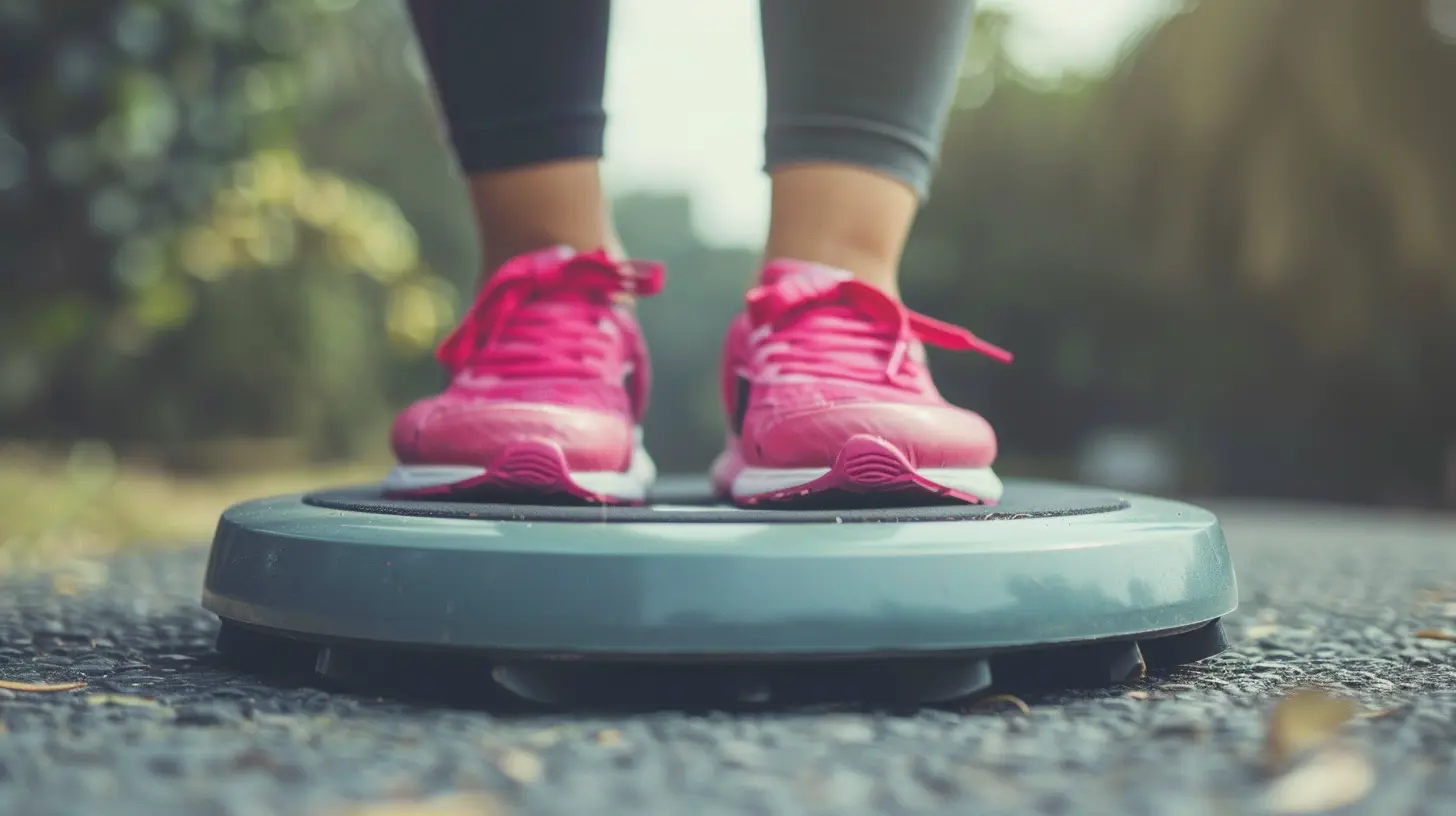Why You Should Make Rest Days a Part of Your Weight Maintenance Plan
25 July 2025
Let’s be honest for a second—nothing feels quite as satisfying as crushing a tough workout. The sweat, the burn, the post-exercise endorphins—it’s addictive. But here’s the kicker: you might be sabotaging your progress if you're skipping rest days. Yup, those “lazy days” you might be tempted to feel guilty about are actually essential for keeping your body in balance and your weight in check.
So before you double down on that seven-days-a-week workout schedule, let’s have a heart-to-heart about why rest days are one of the smartest moves you can make for long-term weight maintenance.
What’s a Rest Day, Really?
A rest day isn’t just about lying on the couch binge-watching Netflix all day (although, no judgment if that happens once in a while). It’s a planned day off from intense physical exercise to allow your body time to recover, repair, and rebuild.There are two types of rest days:
1. Active Rest Days – Light activity like walking, yoga, stretching, or a casual bike ride. Think movement without the intensity.
2. Full Rest Days – Zero workouts. It’s all about intentional inactivity to allow deep recovery.
Both are legit. The key is knowing what your body needs and when.
The Science of Weight Maintenance (And Where Rest Fits In)
Weight maintenance isn’t just about calories in vs. calories out. It’s about creating a lifestyle that your body can sustain long-term without burning out. Exercise plays a critical role, sure, but rest days are what bind it all together.Every time you work out, especially strength or high-intensity sessions, you create tiny tears in your muscle fibers. Sounds scary, but it’s normal. Your body fixes those tears during rest—this is how your muscles grow stronger. No rest? No repair. No gains. Worse, you risk injury, fatigue, hormonal imbalances, and even weight gain due to stress and inflammation.
Yeah, that blew my mind too.
Why Most People Skip Rest Days (And Why That’s a Problem)
We get it—rest feels counterintuitive. There’s this loud, toxic narrative in the fitness world that says “no days off” or “push harder.”Here’s why that mindset is flawed:
- It fuels guilt. If you tie your worth to productivity—even in fitness—it’s easy to feel lazy for taking a day off.
- You chase short-term wins. More workouts, more calories burned, right? But weight maintenance is a long game.
- It leads to burnout. Mentally and physically. One day you’re crushing it, the next you’re exhausted and unmotivated.
So, think of rest days as recharging your battery, not pulling the plug. Your body and mind will thank you.
7 Reasons Why Rest Days Should Be Part of Your Weight Maintenance Plan
Alright, let’s dive into the juicy stuff. Here are seven solid reasons why building in rest days is essential—not optional.1. Rest Helps Prevent Overtraining
You wouldn’t drive your car nonstop without ever getting an oil change, right? Same goes for your body. Overtraining can mess with your immune system, sleep, appetite, and even your mental health. Rest days help you avoid that downward spiral.When you give your muscles and joints a chance to recover, you reduce your risk of injury and keep your workouts sustainable. Injuries can sideline you for weeks—or longer—and that kind of interruption can seriously throw off your progress.
2. It Keeps Your Metabolism Running Smoothly
Believe it or not, overtraining can actually mess with your metabolism. Excessive exercise increases cortisol (your stress hormone), which can cause your body to hold onto fat—not exactly what you want when maintaining your weight.Rest days help balance your hormones and keep your metabolism humming. You’re not burning calories in the gym on those days, but your body is still doing important behind-the-scenes work.
3. Rest Improves Workout Performance
You ever go to the gym feeling like you’re running on fumes? That’s your body saying, “Hey, could you chill for a sec?”When you rest, you allow your body to replenish its energy stores (specifically glycogen in your muscles). The result? You feel stronger, faster, and more capable during your next workout. Better performance usually means better results—and that helps with your long-term weight maintenance goals.
4. It Supports Mental Health & Motivation
Let’s face it, consistently working out takes mental grit. And if you’re running yourself ragged, even the most dedicated gym-goer can start to feel drained, bored, or even resentful.Rest days give your brain a break, too. They help prevent workout fatigue and make it easier to stay consistent because you actually look forward to your sessions instead of dreading them.
Think of it like a cheat meal for your mind—completely guilt-free.
5. Recovery = Muscle Growth = More Calories Burned
Here’s where it gets interesting for weight maintenance. Muscle is metabolically active. That means even at rest, muscle burns more calories than fat. So, the more muscle you maintain, the easier it is to manage your weight.And how do you build that muscle? Not just by lifting weights—but by allowing your muscles time to recover through rest. That’s when the actual growth happens.
So ironically, some of the most impactful calorie-burning moments are when you’re doing... absolutely nothing. Let that sink in.
6. It Reduces Inflammation and Supports the Immune System
Exercise causes a small amount of inflammation in the body. It’s normal and even healthy in controlled amounts. But if you don't rest, that inflammation can build up and become chronic, leading to fatigue, poor digestion, and sluggish weight control.Rest days help flush out excess inflammation and give your body a chance to reset. They’re like a detox day for your muscles and immune system.
7. It Makes Weight Maintenance More Sustainable
Let’s get real—nobody wants to be stuck in a workout grind forever. The best weight maintenance plan is one you can stick to for life. That means balance.By scheduling regular rest days, you're building a routine that respects your body’s need for downtime. This is what keeps you coming back day after day, year after year, without feeling like you need to quit.
How Many Rest Days Do You Really Need?
There’s no one-size-fits-all answer here, but a good starting place is:- 1–2 full rest days per week for most people with a moderate workout routine.
- Sprinkle in active recovery days (like yoga or walking) if you’re feeling stiff but still want to move.
- Always listen to your body. If you’re unusually sore, tired, or moody, that might be your sign to take a break.
Your body has a clever way of asking for what it needs—you just have to tune in.
Signs You Might Need a Rest Day (or Two)
Not sure if you’re overdoing it? Here are some red flags:- Your muscles are constantly sore or stiff
- You’re not sleeping well
- You feel unmotivated or cranky
- Your progress has stalled
- You’re getting sick more than usual
- You dread your workouts instead of loving them
If you ticked off a few of those boxes, it might be time to step back—not because you're weak, but because you're wise.
What To Do On Your Rest Days
Okay, so you’ve decided to chill for a bit. But that doesn’t mean lying in bed all day (unless you need that).Here’s how to make the most of your rest days:
- Take a walk outside—nature’s therapy
- Do some gentle yoga or stretching
- Meal prep for the week
- Read something inspiring
- Hydrate and focus on nutrition
- Foam roll or do mobility work
- Get extra sleep
Remember, the goal is to support recovery—not stall it. So keep it light and intentional.
Rest Isn’t Laziness—It’s Strategy
Here’s the bottom line: if you're serious about maintaining your weight, you need to take rest days just as seriously as your workouts. It's not about doing less; it's about doing what's smart.Think of it like this—if workouts are the bricks of your fitness foundation, rest days are the mortar. Without them, the whole thing crumbles.
So next time you find yourself itching to squeeze in an unnecessary workout out of guilt or habit, ask yourself: “Am I building something sustainable?” If not, it might be time to chill.
Final Thoughts
There’s no medal for pushing yourself to exhaustion. There’s no prize for never missing a workout—especially if it’s coming at the cost of your health, motivation, or results.Weight maintenance is marathon-level stuff. And just like in a race, pacing yourself—rest days included—is the key to crossing the finish line feeling strong, energized, and still smiling.
So take that rest day. Put your feet up. Watch that show. Your body is doing some seriously important work behind the scenes, and that’s something worth celebrating.
all images in this post were generated using AI tools
Category:
Weight MaintenanceAuthor:

Angelo McGillivray
Discussion
rate this article
1 comments
Talia McDowney
Great article! It’s so easy to forget that rest days are just as important as workouts. They help recharge our bodies and minds. Let's embrace those rest days; they’re essential for maintaining our health journey!
August 3, 2025 at 3:45 AM

Angelo McGillivray
Thank you! I'm glad you found the article valuable. Rest days are indeed crucial for recovery and long-term health!


